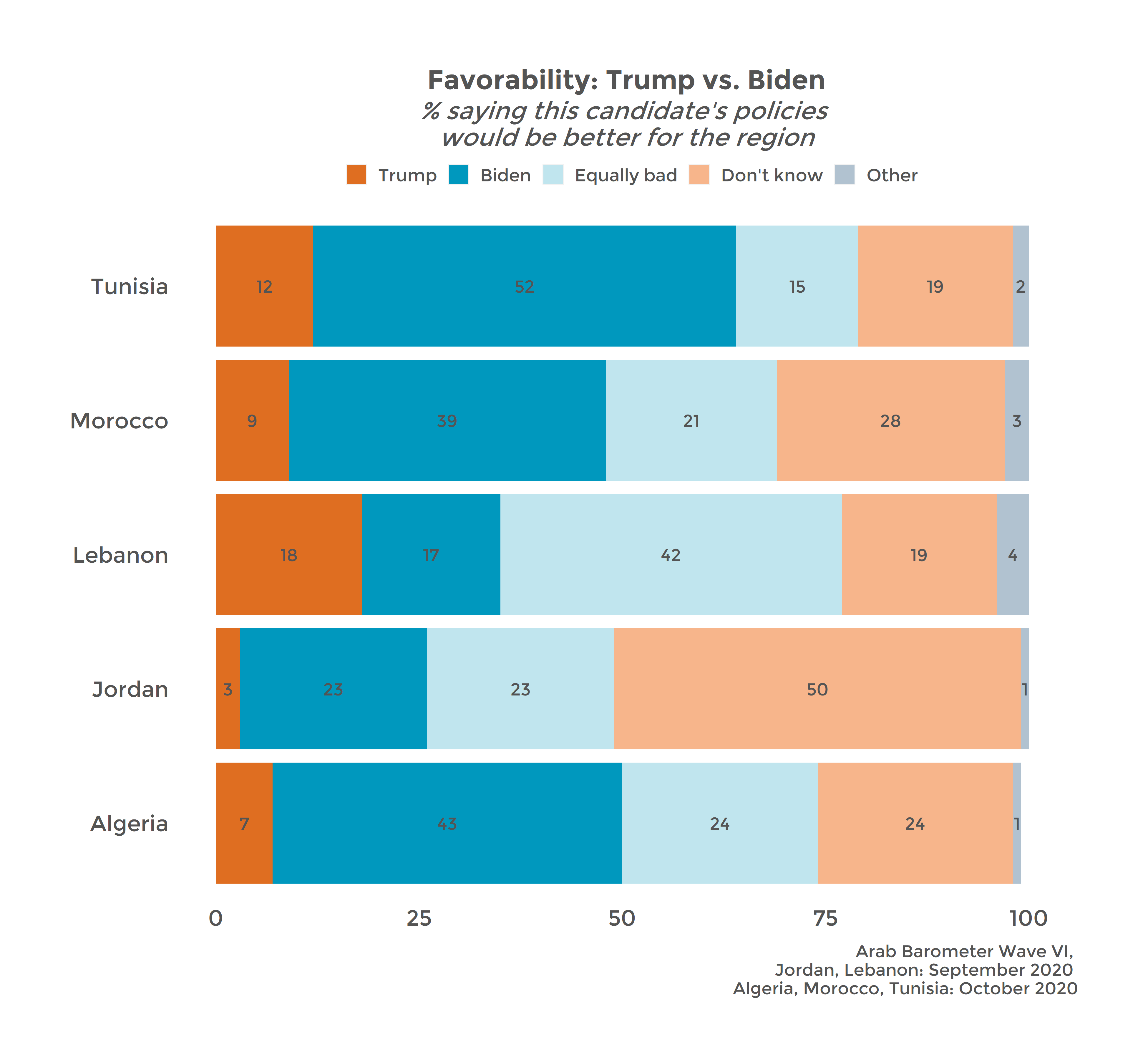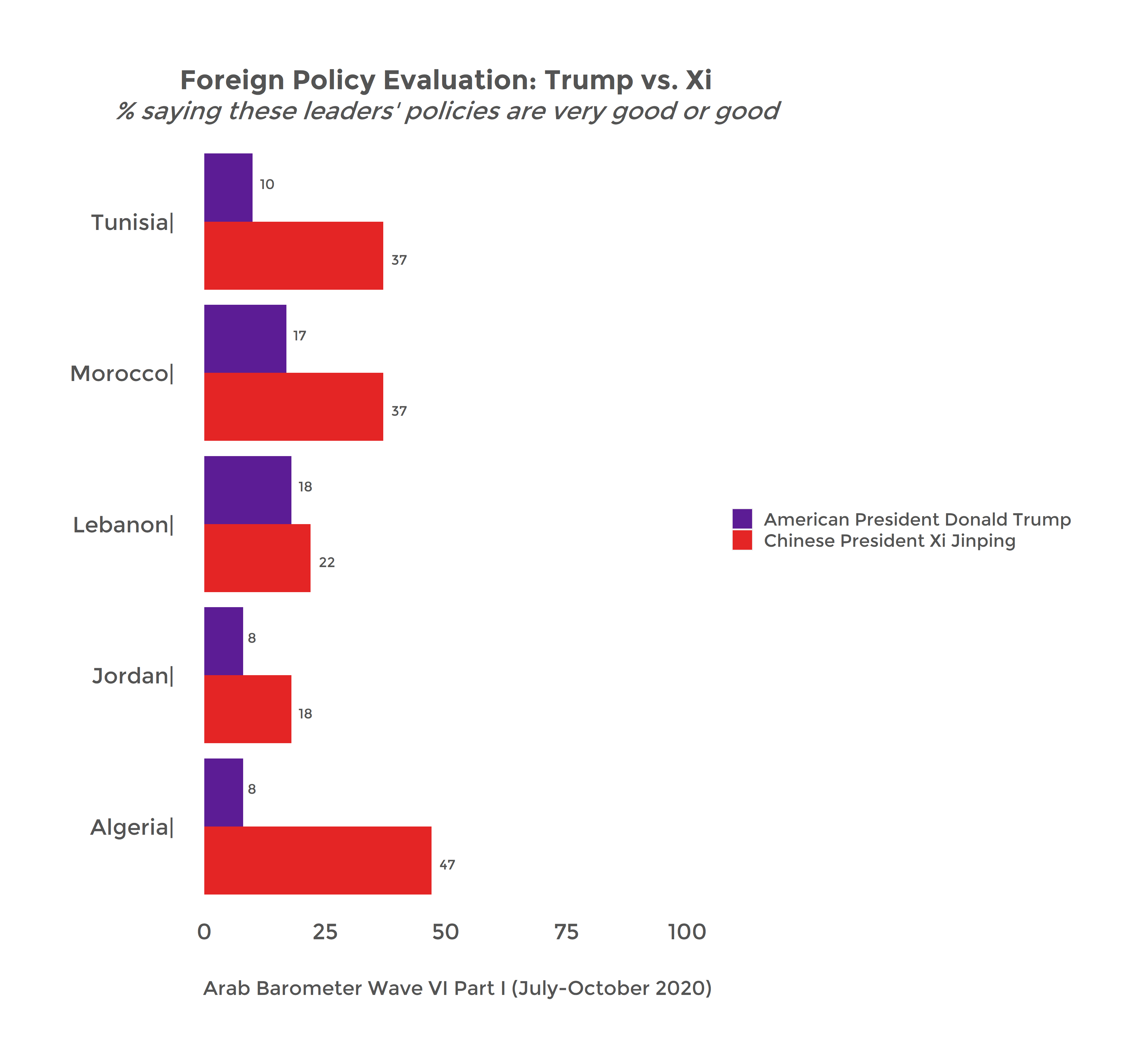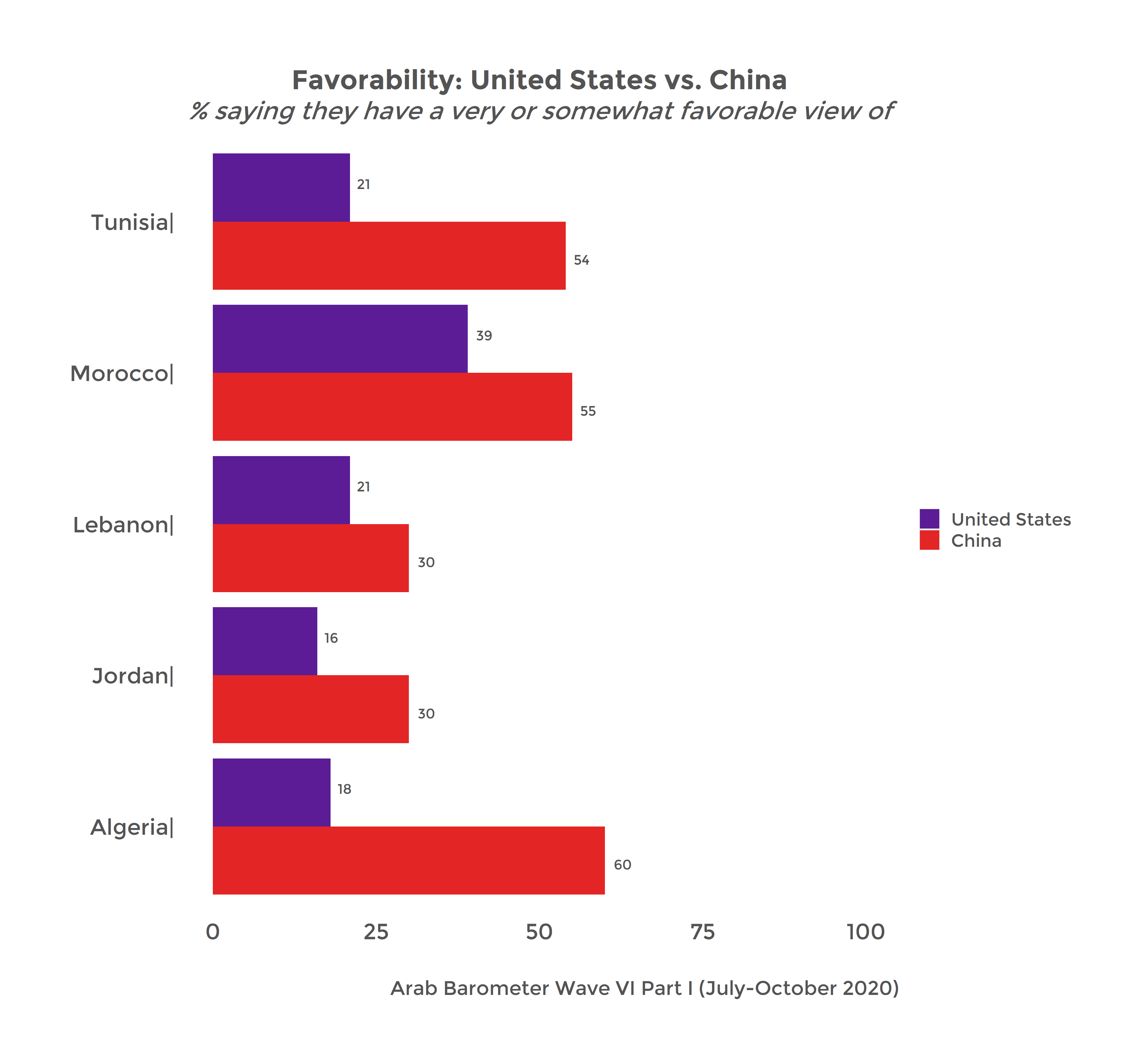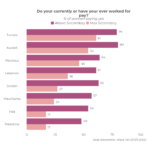We asked Arab citizens across MENA about their preferred US presidential candidate and their opinion of the US. And the results reveal clear preferences within the election.
Overall, Arab citizens think Biden’s foreign policies would be better for the region. And, the U.S.’s image suffers, in part as majorities in the Arab world express unfavorable views of Trump’s approach. That is based on Arab Barometer’s latest survey of more than 5,000 people in five countries in the Middle East and North Africa that was conducted by mobile phone during the fall 2020. Notably, the results reveal that Lebanese are indifferent between the two candidates, while the most common response is that the policies of both would be equally bad for the region.
But, will America’s position in the Arab world improve if Biden wins the US elections? I asked Michael Robbins, Arab Barometer’s director, to comment on the results and to share his thoughts on how the outcome of the upcoming election might affect Arab citizens’ views of the U.S..
Aseel Alayli: What can the data tell us about Arabs’ views towards Trump’s presidency and how it might impact the future US relations with MENA countries?
Michael Robbins: President Donald Trump remains deeply unpopular across the Middle East and North Africa. Arab Barometer surveys from 2018-9 reveal that his support is far lower than for other world leaders. Across the region, an average of 12 percent of Arab citizens approved of his policies for the region, which are significantly lower than for Russian President Vladamir Putin (28 percent) and far lower than for Turkish President Recep Tayyip Erdogan (51 percent).
In new Arab Barometer surveys from fall 2020, his approval of his policies toward the region remains unchanged across citizens in five countries surveyed (Algeria, Jordan, Lebanon, Morocco, and Tunisia). By comparison, about a third say they approve of the policies of Chinese President Xi Jinping.
Views of the U.S. overall are somewhat more positive than views of Trump across the region, only a minority rate the U.S. positively. On average, about a quarter of citizens view the U.S. favorably or somewhat favorably, with a high of 39 percent in Morocco and a low of 16 percent in Jordan. However, there has been an overall decline in views toward the U.S. and the American people since 2016, which suggests the policies of the Trump administration might be a factor in changing views of the U.S. during this period.
Alayli: How would a second Trump term versus a Biden victory shift Arabs’ views towards the US?
Robbins: Across the five countries surveyed, citizens are, on average, more than three times more likely to prefer Biden over Trump. Overall, only one-in-ten say that Trump’s policies would be better compared to about a third that prefer Biden. The only exception is Lebanon, where support for Biden (17 percent) and Trump (18 percent) are about equal, although there are significant differences by sectarian identity. Overall, Christians and Sunnis are significantly more likely to prefer Trump compared with Shias and Druze.
Notably, many citizens across MENA are unconvinced that either candidate would have better policies for the region. On average, a quarter of citizens say that the policies of both candidates would be equally bad, including 42 percent of those in Lebanon. Additionally, roughly one-in-three across the countries surveyed say they don’t know which candidate would be better.
Given Trump’s relatively low ratings in MENA over the last four years, a Biden presidency could offer an opportunity for improving view of the U.S. Over half of citizens in the five countries surveyed are hopeful Biden would be better or don’t know how to evaluate him compared with Trump, suggesting a Biden could improve the U.S.’s image among Arab publics.
Still, preliminary data from an ongoing survey suggests only a minority believe that the outcome of the election will actually lead to any change in U.S. policies toward MENA. Although Biden’s policies will differ somewhat from those of Trump, it is unlikely that they will be demonstrably different in the eyes of most citizens on key challenges facing the region such as Israel-Palestine, Syria, Libya or Yemen. Although views of Biden are likely to remain higher than for Trump, the likelihood of a major shift in views of the U.S. is relatively limited.
Search for #ArabPulse to find out more.
—
To request an interview with an AB expert, please contact Aseel Alayli by email: aalayli@princeton.edu or +1 202-716-9068.







